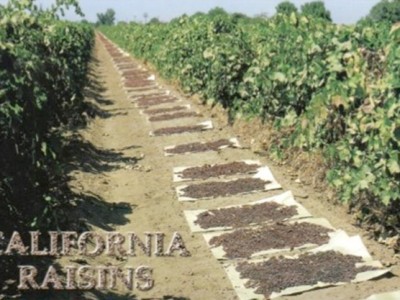regulatory takings
Property Rights and California Raisins: Headed to the Supreme Court–Again
Justices To Rule on Whether Feds’ Depression-Era Agricultural Regulations Unconstitutionally “Take” Farmers’ Property Without Compensation
The media and U.S. Supreme Court watchers have understandably focused on the justices’ order yesterday agreeing to review the constitutionality of state same-sex marriage bans–automatically making it the “blockbuster” issue before the Court this Term. Largely overshadowed by that news was the justices’ contemporaneous decision to revisit the interrelated issues of property rights, the Takings …
Continue reading “Property Rights and California Raisins: Headed to the Supreme Court–Again”
CONTINUE READINGWill Regulatory Takings Always Be A Mess?
Takings law is a legal quagmire. It’s likely to stay that way.
I recently reread an article that my late colleague Joe Sax published exactly fifty years ago. It’s a striking piece of scholarship, all the more impressive so early in his career. But one particular statement made a particular impression on me: “Nevertheless, the predominant characteristic of this area of law is a welter of confusing …
Continue reading “Will Regulatory Takings Always Be A Mess?”
CONTINUE READINGKoontz and Exactions: Don’t Worry, Be Happy
As Rick pointed out the other day, with Koontz v. St. John’s River Water Mgmt. Dist., the Supremes finished their Takings trifecta for this term, with unsurprisingly the plaintiff winning in all three cases. Koontz raised two issues: 1) do Nollan and Dolan apply when the government simply denies a permit, as opposed to attaching …
Continue reading “Koontz and Exactions: Don’t Worry, Be Happy”
CONTINUE READINGWhat IS a Nuisance, Anyway?
If you’re a Property teacher, you have probably taught nuisance law. If you are a Land Use teacher, you have probably taught Lucas v. South Carolina Coastal Council, which relies on nuisance law to establishing “inherent limitations on title.” More specifically, you have probably taught the Restatement standard for nuisance, which states that an activity …
Continue reading “What IS a Nuisance, Anyway?”
CONTINUE READINGTakings, Standing, and Those Nasty Neighbors
Most lawyers reading this page are familiar with Nollan v. Calif. Coastal Comm’n, the 1987 Supreme Court case holding that exactions in exchange for land use permits must show an “essential nexus” between the purported harm generated by the permit and aims of the exaction. (More precisely, Nollan gave heightened scrutiny to finding that nexus.). …
Continue reading “Takings, Standing, and Those Nasty Neighbors”
CONTINUE READINGIf the Constitution is Dead, where does that leave Takings?
Justice Scalia is getting a lot of attention for his comment that the Constitution is “dead, dead, dead”, but obviously he didn’t mean that the Constitution is no longer in effect. (See? Intent theory sometimes is helpful, Nino.). Rather, he meant that the Constitution does not have a meaning that changes over time. It has …
Continue reading “If the Constitution is Dead, where does that leave Takings?”
CONTINUE READINGThe Mystery of Koontz: “Why Are We Here?”
Lyle Denniston of SCOTUSBlog reports that the plaintiff’s argument in the Court’s highest-profile Takings case of the year, Koontz v. St. John’s River Water Management District, did not go well. Both Rick and I have blogged about the case before, and the more I think about it, it seems to me that the case has been …
Continue reading “The Mystery of Koontz: “Why Are We Here?””
CONTINUE READINGThe Trouble with TDRs
What went wrong with TDRs? But first, you might ask, what are TDRs? TDRs — more formally, transferable development rights — were the first form of environmental trading system to be used in the United States. For instance, the Supreme Court decided a the Penn Central case, which involved TDRs over a decade before Congress created the …
Continue reading “The Trouble with TDRs”
CONTINUE READINGNinth Circuit Upholds Oregon’s Measure 49 Against Takings Challenge
Seven years ago, Oregon’s voters enacted Measure 37, a ballot initiative that essentially threatened to end all land use controls in the state. Measure 37 stipulated that any land use control that reduces someone’s property values must be compensated by the state, an extraordinary principle that threw the state’s land use system into chaos. Three …
Continue reading “Ninth Circuit Upholds Oregon’s Measure 49 Against Takings Challenge”
CONTINUE READINGHow Plaintiffs Can Win More Takings Cases: A Proposal for California
I’ve never been particularly sympathetic to regulatory takings claims; like many on the left of center, I’m wary of expanding a constitutional doctrine with the potential to severely injure good land-use planning and reconstitute Lochnerism. That said, it’s hard to look at the reports of many takings cases without getting a strong sense that a lot …
Continue reading “How Plaintiffs Can Win More Takings Cases: A Proposal for California”
CONTINUE READING





